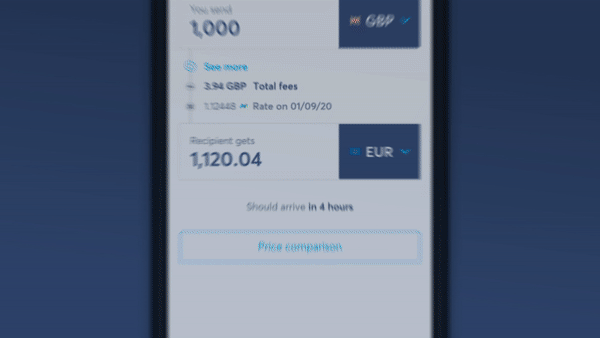Opening a Business Bank Account in Sweden for US Users
A review of business bank account Sweden options. Compare features and find the ideal banking partner for your Swedish enterprise.

Alibaba is a digital marketplace that offers an eCommerce store for customers and merchants. Businesses can use Alibaba RFQs (request for quotes) to get an idea of what price various suppliers can provide goods for.
The built-in RFQ Alibaba system allows buyers to put out a request for bids from suppliers. The buyer can make an informed decision based on the bids presented to them.
The RFQ represents a key step in the buying process on Alibaba’s global online marketplace. RFQ requests usually take place once the buyer has identified a few suppliers and wants to find out what prices they can offer.
So what is RFQ Alibaba exactly?
When you send out an RFQ to suppliers listed on Alibaba, it signals your intent to buy - for the right price. It takes the form of a document in which you outline the specifications of the product you need.
The response will inform you what prices the supplier can offer for each item or product outlined on your list.
When you receive the supplier’s response to your RFQ, you’ll have a clear idea of the supplier’s prices to inform your purchase decision.
The buyer will wait until they have several RFQ responses before choosing a supplier, to test the value of each supplier’s offer.
| 🔍 Read on to discover: | |
|---|---|
When you sign up for Alibaba as a free user, you qualify for 10 RFQ quotations that you can use with selected vendors. You can also subscribe to a paid Alibaba RFQ service that will give you access to more quotes and resources, including a personalized profile page.
It’s important to bear in mind, though, that the quotes you receive will only be accurate if your RFQ includes all the relevant details.
|
|---|
When you include this information in the RFQ template, you increase your chances of receiving accurate quotes.
When it comes to submitting your RFQ on the platform, there are several steps to take.
Here’s how to submit an RFQ on Alibaba:
There is more than one type of RFQ available on Alibaba, so it’s important to make sure you pick the right one from the following options:
Invited bid:
The invite bid is a general RFQ that functions much the same way a standard RFQ does. As the buyer, you submit an RFQ and receive price quotes from suppliers.
It’s a quick and straightforward option designed to connect you with suppliers you know and trust. While reliable, this type of RFQ might close the door to new suppliers with more flexible pricing.
Open bid:
With an open bid, you can invite more suppliers to provide quotes. Submitting the RFQ to different sellers, each seller will see what the other has offered. They can then engage in a bidding contest up until the deadline you assign.
While this type of bid encourages flexible pricing options, it can also result in lower bids.
Sealed bid:
A sealed bid will only be visible to the suppliers whom you send it to. This removes the competition between suppliers, but can secure you a deal with a trustworthy supplier.
Reverse auction:
A reverse auction RFQ opens up the floor to auction-style bidding, but in reverse.
Vendors submit their lowest price quote for the products you need, and the price will decrease during the bidding process. With this approach, you’ll end up with the lowest price, but this might not factor in other considerations.
This is what the entire RFQ process looks like from start to finish:
|
|---|
It’s worth noting that not every supplier will respond to your RFQ. It’s up to the vendor to decide whether they will provide a quote or not.
As such, don’t place too much stock in receiving a quote from a specific supplier, as there’s a chance you may not hear back from them at all. Instead, send out RFQs to 5-10 vendors so that there’s little risk of leaving empty-handed.
Once you receive the quotations, you should review each one. Here are some criteria to pay attention to when you go through supplier quotes:
After reviewing your RFQs you don’t have to decide on one supplier. You can draw up a shortlist of the best vendors. You may want to contact suppliers and ask for samples from each to assess the quality of the products.
When you choose 2-3 vendors, you can also see if you’re getting a reasonable quote. A low price might indicate a lower quality product, yet you can’t rely on assumptions like this in your decision-making process.
Other factors can come into play too such as communication, response time, and customer service.
Once you have selected your final supplier you should let the others know that they have not been selected. It’s now that you should reach out to your preferred vendor and start negotiating a contract and payment terms.
The finalized unit price can vary from the price mentioned by the vendor in the initial RFQ. This is because the RFQ isn’t a formal contract, and as such, the details are liable to change during finalization.
Here are some reasons for last-minute price changes:
In particular, watch out for shipping incoterms, as they can have a significant impact on pricing.
If the RFQ price assumes the most basic EXW incoterm, then the vendor won’t be responsible for shipping costs. If you need DAP, then the vendor will be in charge of door-to-door shipping at a high price.
Alibaba RFQs are often involved when sourcing wholesale goods from overseas. You can get RFQs from several Alibaba wholesale suppliers and then choose the one that best suits your needs.
Paying overseas suppliers is simple and cost-effective with a Wise Business account. You can pay vendors in their currency at the real mid-market rate.
| Pay vendors and bills for up to 19x cheaper than PayPal | |
|---|---|
| Join Wise Business today |
There’s no need to worry about hidden fees and poor conversion rates. Sign up for free and start paying your vendors the Wise way.

*Please see terms of use and product availability for your region or visit Wise fees and pricing for the most up to date pricing and fee information.
This publication is provided for general information purposes and does not constitute legal, tax or other professional advice from Wise Payments Limited or its subsidiaries and its affiliates, and it is not intended as a substitute for obtaining advice from a financial advisor or any other professional.
We make no representations, warranties or guarantees, whether expressed or implied, that the content in the publication is accurate, complete or up to date.

A review of business bank account Sweden options. Compare features and find the ideal banking partner for your Swedish enterprise.

Discover the best digital payment services for your business. Compare top-rated platforms.

Set up a business account Japan with ease. Learn the process, required documentation, and best banking options for your company in Japan.

Learn about interchange fees, what they are, and how they impact your business transactions. Essential info for managing payment costs.

Discover the most popular ecommerce payment methods to improve your checkout experience, increase conversion rates, and meet customer preferences worldwide.

Find the best tax preparation software for your small business. Simplify your filing process and ensure accuracy with top-rated tools.